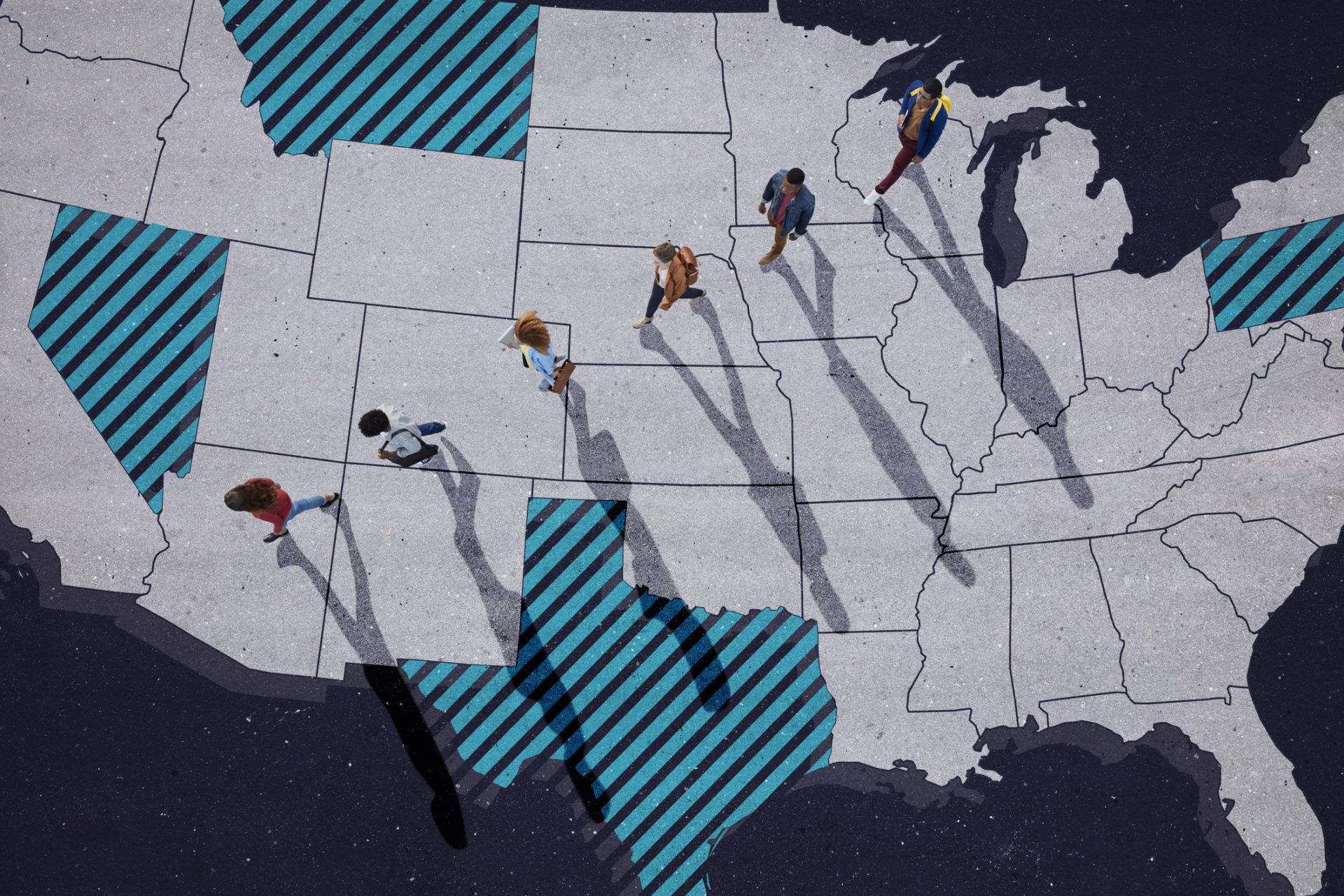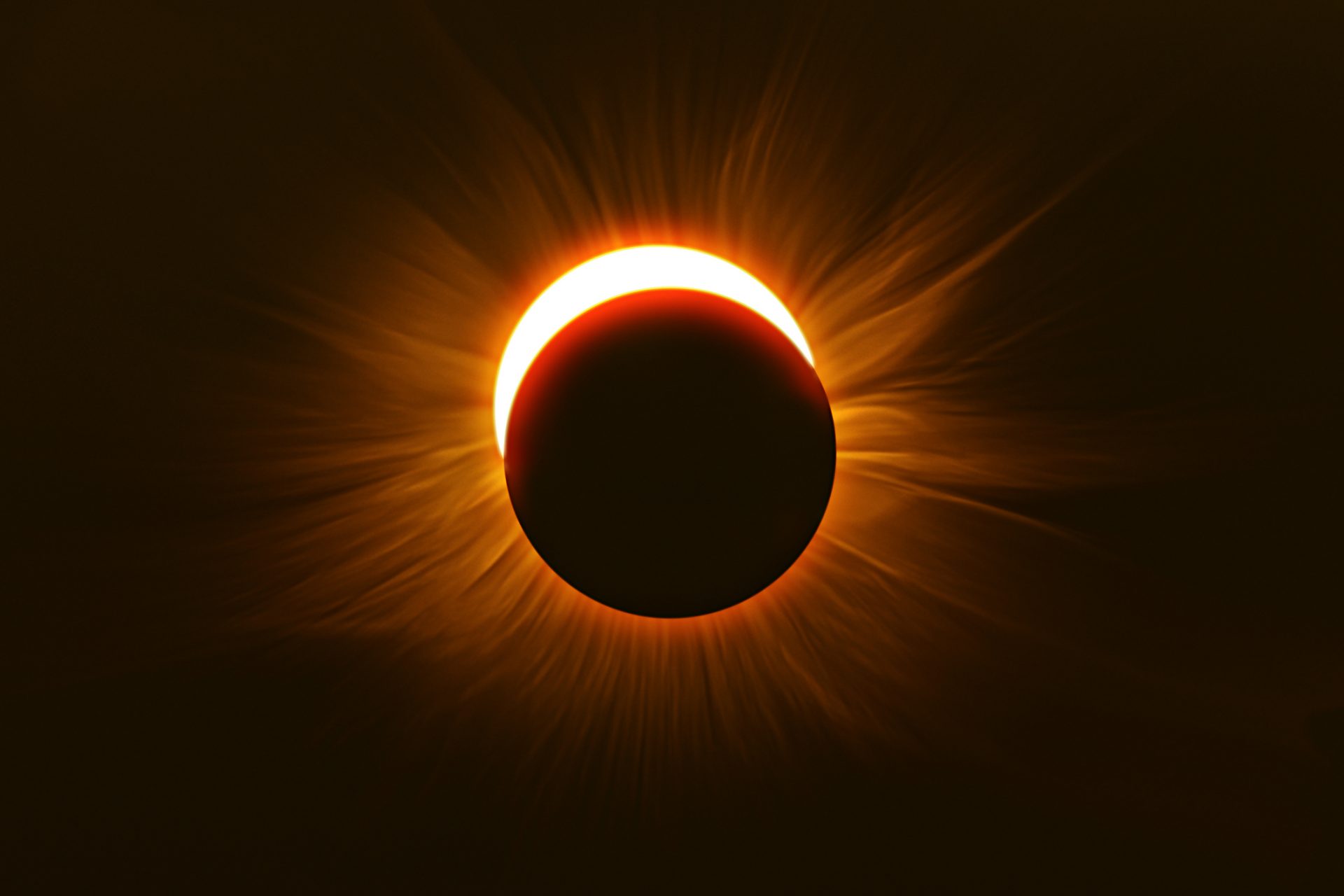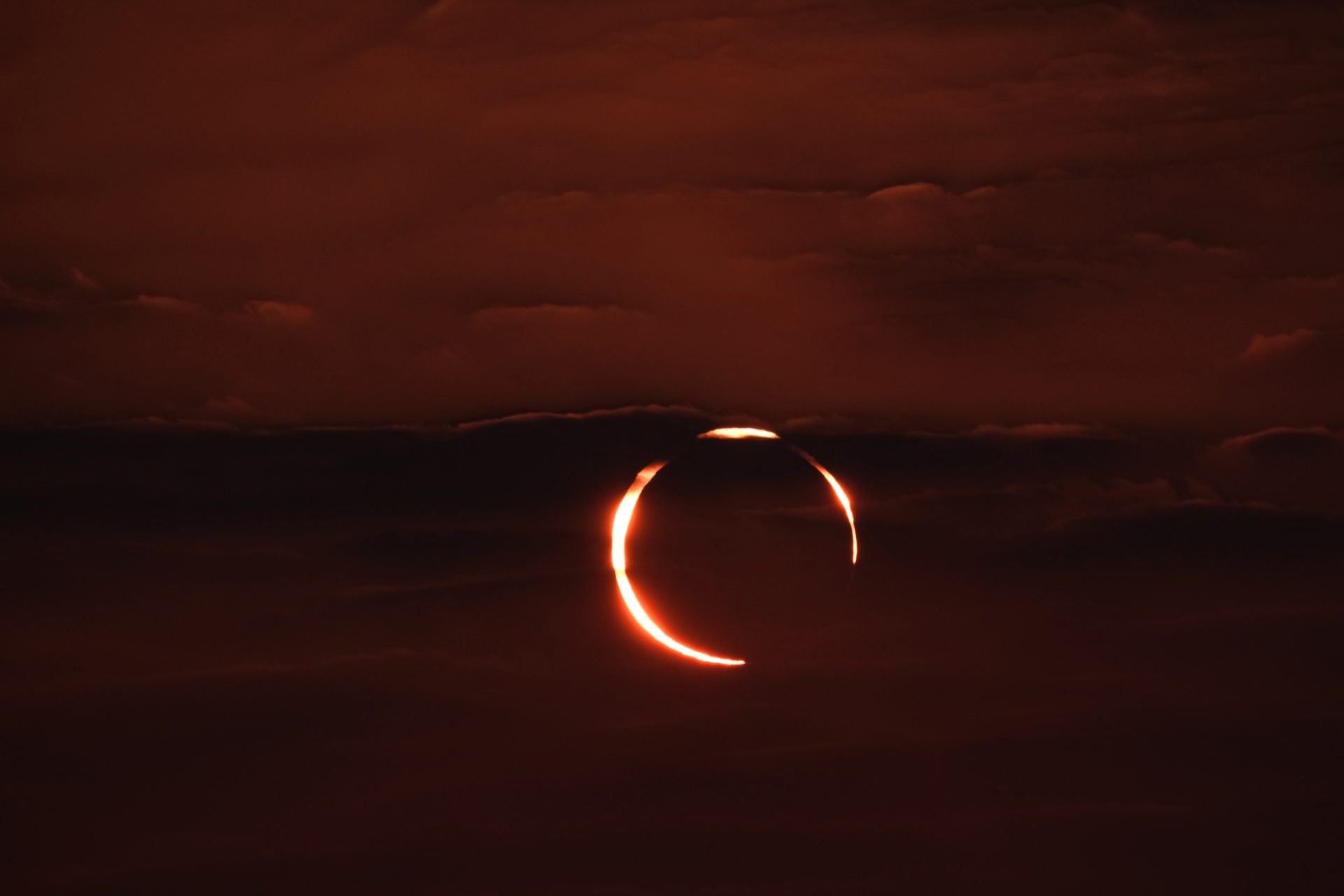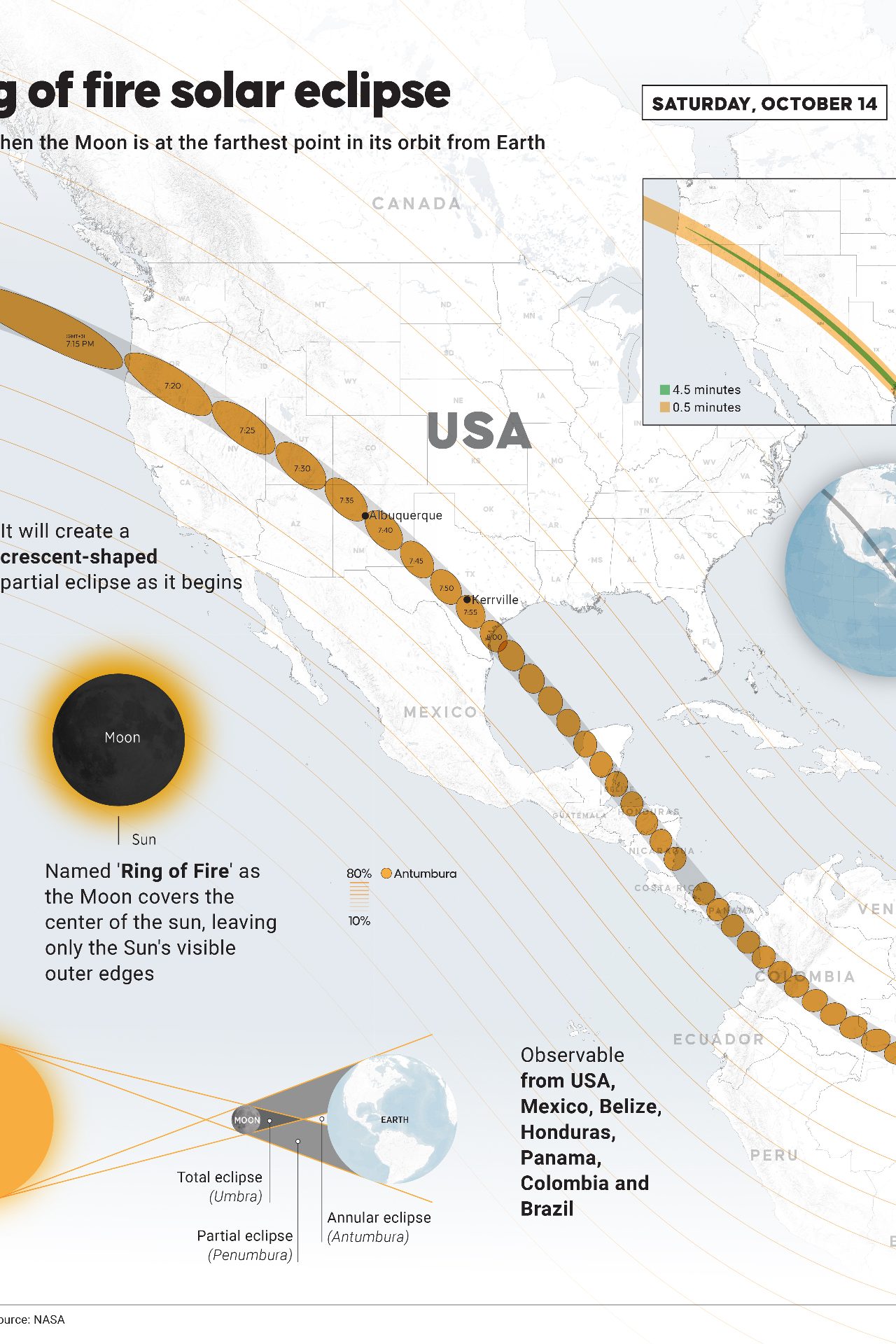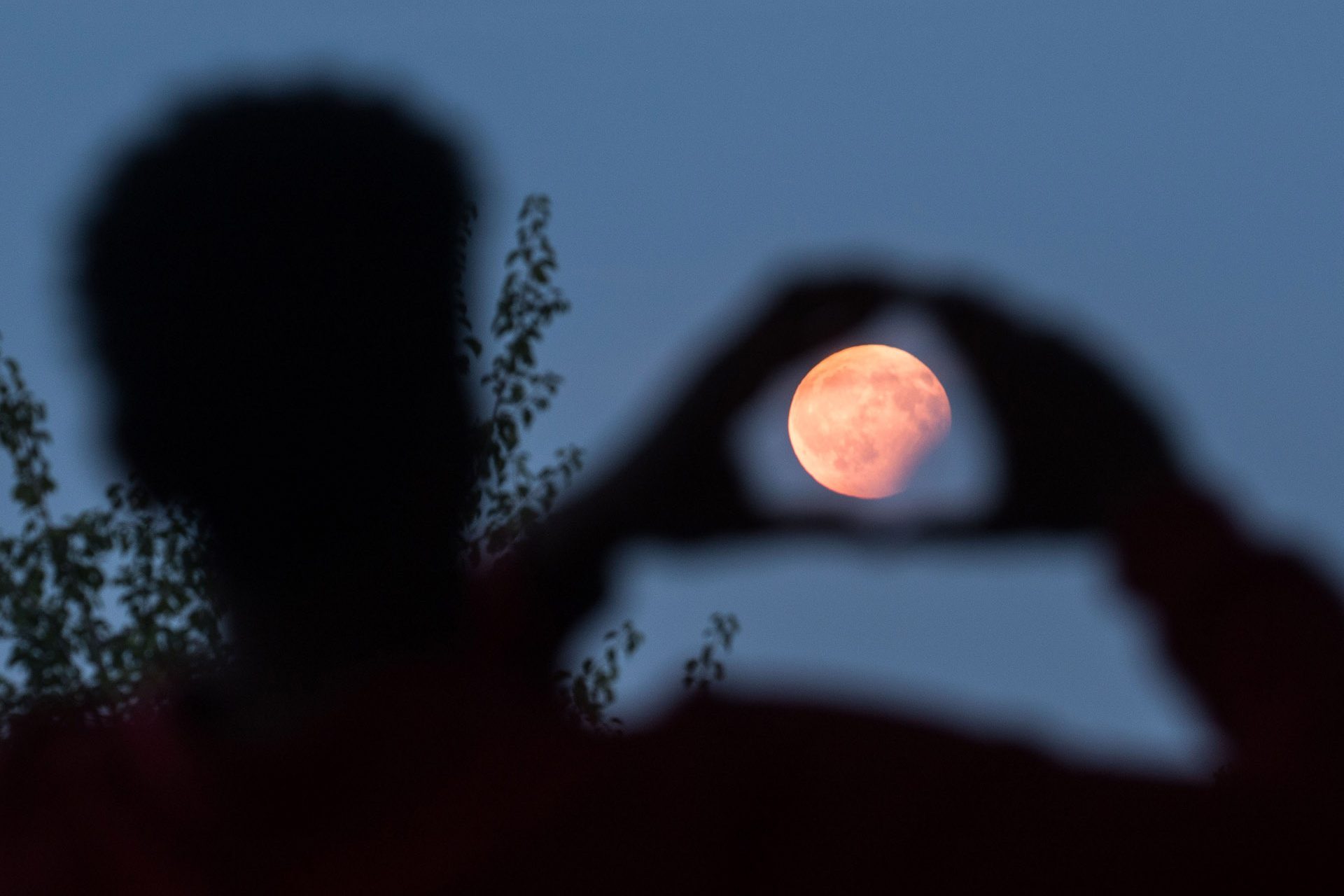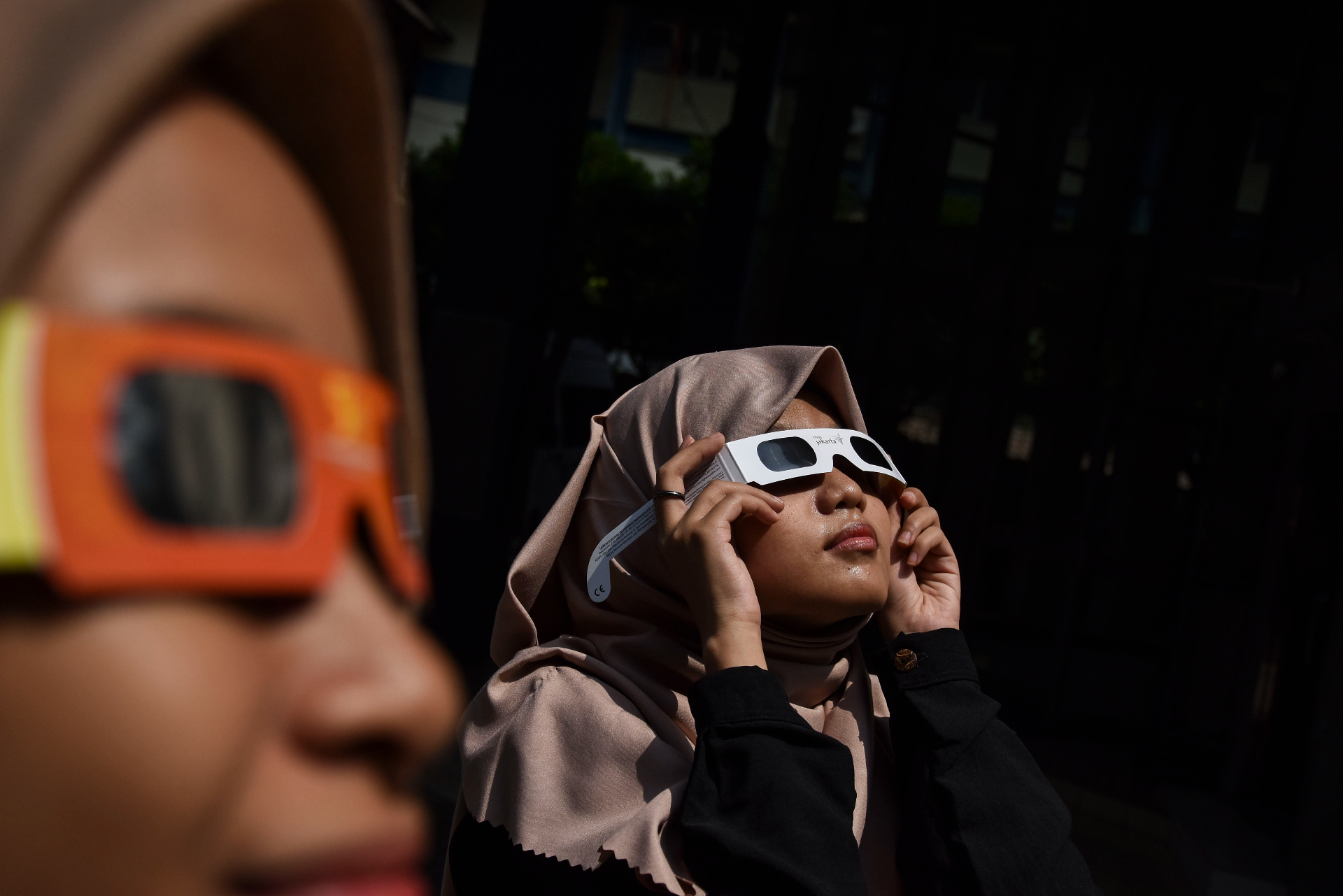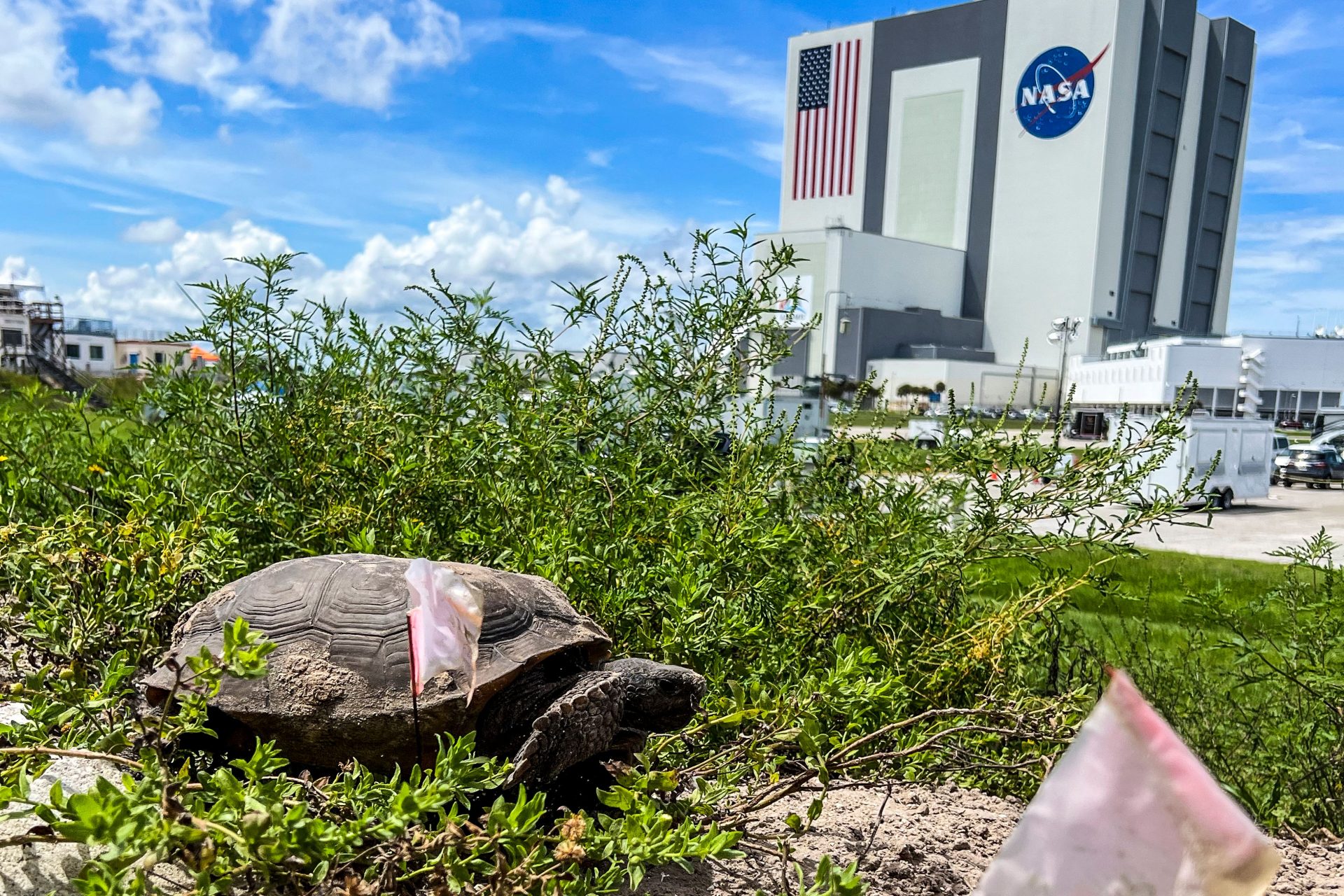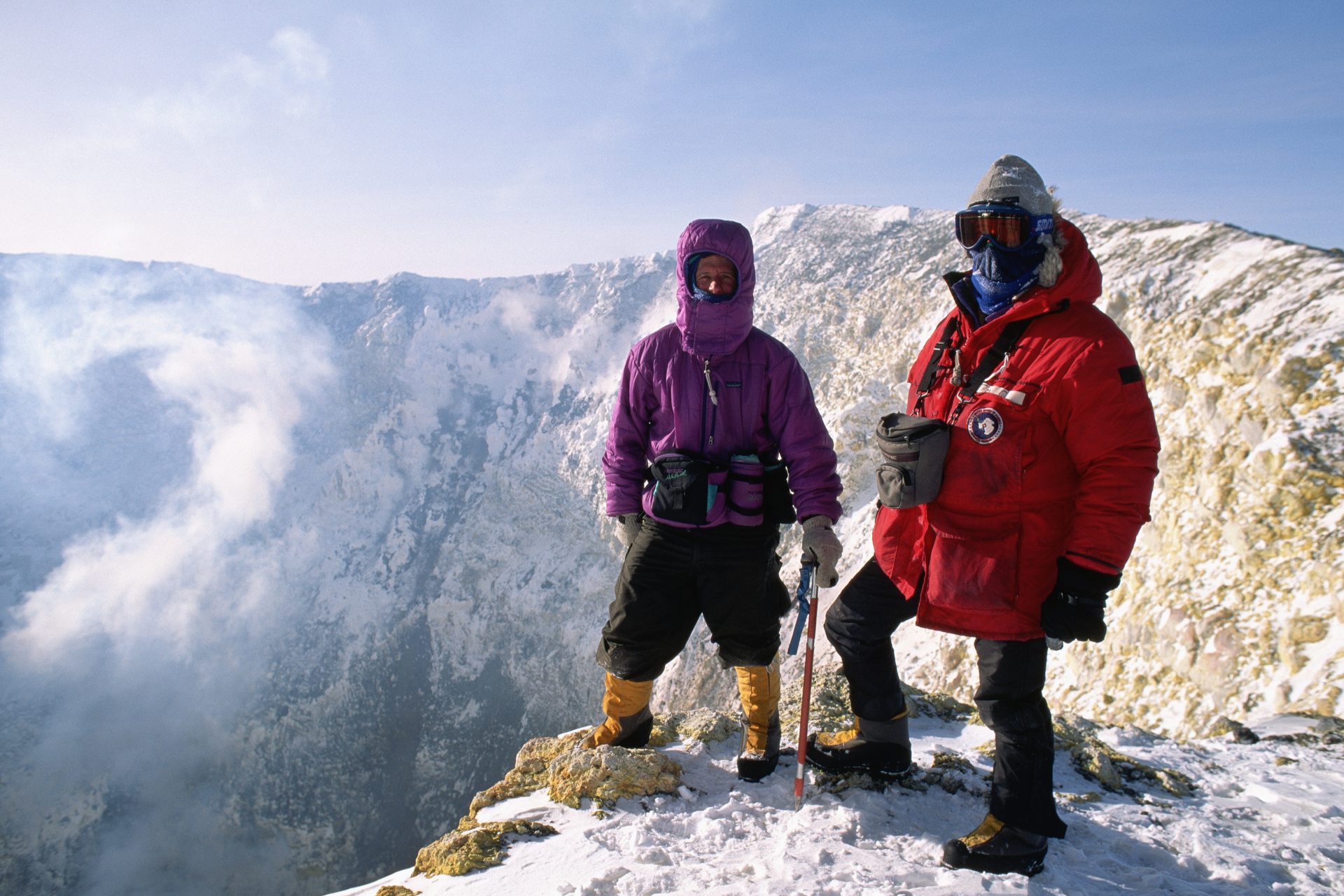A spectacular solar eclipse will hit North America soon
North America is preparing to receive a fantastic astronomical phenomenon: a total solar eclipse will cross from the Mexican Pacific to the US East Coast on April 8.
From viewing parties to citizen science gatherings, the options to watch the eclipse are vast, and towns across the path prepare for an overflow of visitors.
The path of the eclipse will go through 15 states, including Tennessee and Michigan, where it will be barely visible. It will be 115 miles wide.
Image: NASA's Scientific Visualization Studio
This eclipse will be the second in six months: last October, the continent witnessed an annular, or ring of fire, eclipse with the moon covering the sun's center.
The annular eclipse also crossed most of the US, but it did so in the opposite direction of the next eclipse.
It happened because the moon was too close to Earth and far from the sun to cover it completely.
That will not happen on April 8. It will be a total eclipse. People must wait until 2046 to watch another Ring of Fire eclipse in North America.
Still, the spectacle should be worth it. During a total eclipse, you can remove your protective goggles when the sun is dark but keep them on while the moon converges.
Make sure to use certified protective glasses or make a projector to watch the eclipse indirectly. You will need a special filter to use your phone, camera, or binoculars.
AP News says the Indianapolis Motor Speedway will host NASA astronauts at a viewing event. That is only one town with planned activities around the eclipse.
Cleveland, Ohio, has even warned its residents to plan their weekends around the visitors overflowing the town, reported local media.
It might seem a bit much, but solar eclipses gather crowds of astronomy enthusiasts and scientists.
According to CNN, eclipses give scientists a unique clarity to study the sun and how it interacts with Earth, mainly how it affects the Earth's atmosphere.
For example, scientists at the Fort Worth Zoo in Texas will study how animals react to solar eclipses to complement another study done during the last total eclipse last summer.
The Little Rock Zoo in Arkansas is doing the same study and invited the public to help document the animals' reactions as a citizen science event.
Image: Cassidy Dickens / Unsplash
Seasoned eclipse chasers recommended that AP news readers check the weather forecast a few days before the event to ensure they have clear skies in their chosen viewing area.
More for you
Top Stories



